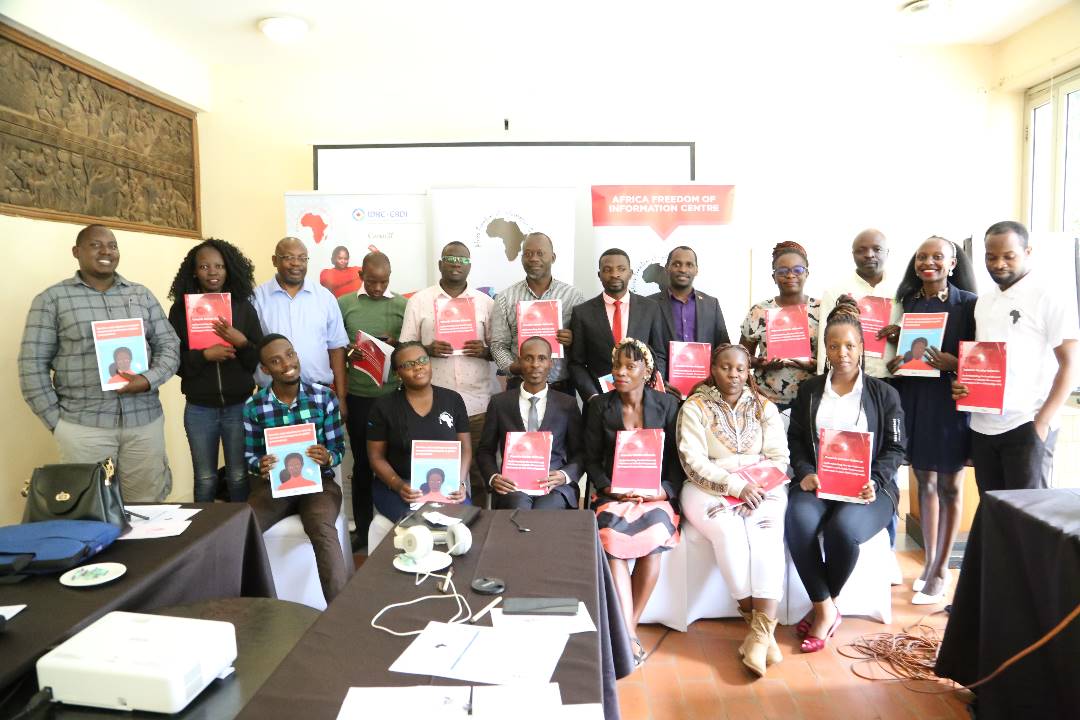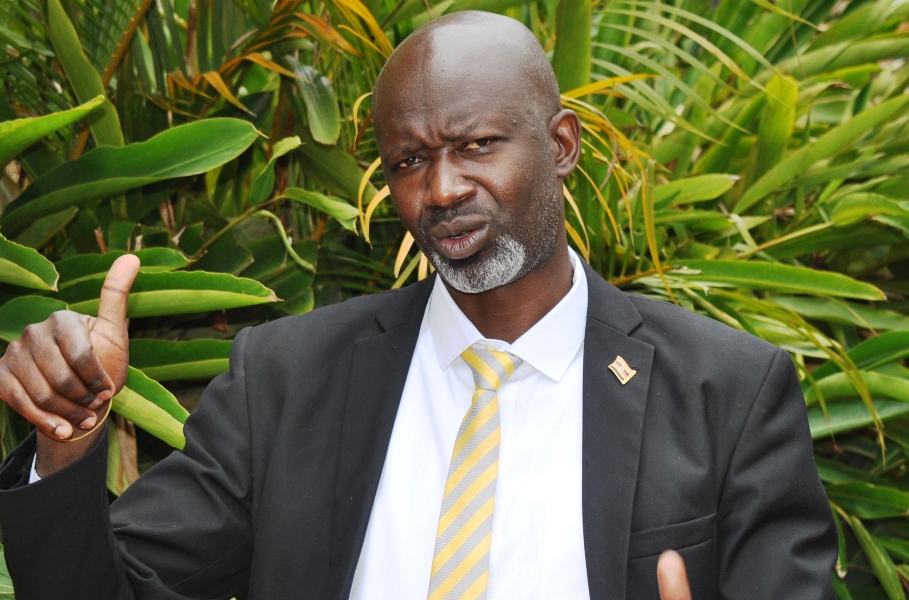The government of Uganda has been earnestly urged to waive taxes for women-led young ventures to facilitate their scalability, such that they manage to expeditiously participate in public procurement.
This direct appeal was made by Ms. Olive Kabatwairwe, the programmes coordinator for Africa Freedom of Information Center (AFIC), during a media roundtable discussion on inclusion of women-led businesses in public procurement in Uganda, organised by AFIC. The deliberations occured on June 30th 2023, at Golf Course Hotel, Kampala.
Ms. Kabatwairwe noted that for women-led ventures to expeditiously take part in public procurement, they must be formal, that is to say; duly registered with Uganda Registration Services Bureau (URSB), on top of being able to meet their tax obligations.
She however clarified that the scalability of these ventures is hobbled by their informality, because their owners prefer to keep them informal, so as to circumvent paying heavy taxes.
In this regard, she implored government to exempt women-led ventures which are new in the market from paying taxes for a considerable period of time, a move that would heighten their profitability, hence growing into large enterprises, able to massively take part in public procurement.
“The other issue women are running away from public procurement is because of the taxes. Can URA come up may be give tax exemptions for some businesses, especially women-led businesses who have been in operation maybe for a period of five years, because most of them are still in their infancy stage, so that they are able to mature, because most of them are running away, they are evading and not engaging in public procurement because of the taxes,” Kabatwairwe appealed to government.
She called upon government to make a deliberate effort to strengthen gender responsive public procurement in Uganda, through putting in place thresholds in terms of value of contracts to ensure that a significant number of women owned ventures are awarded government tenders.
The soft spoken human rights activist also urged authorities to craft and make available, elaborate and sufficient information/statistics pertaining annual participation of women in public procurement which can be used as a point of reference.
“We also need to see data, because we believe in data, in statistics, because from our data, we couldn’t find data how many women have engaged in public procurement and it is very important that we know how many have engaged, in which sector and how much they have earned, how they have won,” Kabatwairwe added.
It should be noted that a handful of Civil Society Organizations (CSOs) are alarmed by worrying low levels of participation for women-led enterprises in doing business with government.
This has caused concern, inspiring the AFIC to conduct a study on the phenomenon, and came up with a coherent body of knowledge on the barriers to intense participation of women-led ventures in public procurement, with a major focus on East Africa and Uganda. The study also suggested solutions to outdo the current state of affairs in this domain.
This 2023 study indicated that whereas governments in the region spend 60% of their national budgets every year through public procurement, the participation of women owned businesses in that realm is at worrying low levels, less than 1%.
It was also found out that until the amendment of the Public Procurement and Disposal of Public Assets Act (PPDA) in 2021, there was no affirmative action in Uganda, unlike in Kenya and Tanzania, where the laws prescribe that 30% of pubic tenders should be reserved for special groups including women, youth and persons with disabilities.
Worse still apart from unfavorable enabling policies in Uganda, it was established that there were capacity challenges, including lack of access to information on tender opportunities in government agencies by women, limited technical capacity to interpret and prepare responsive bids, lack of access to finance, defaulting on payments by government for a few women who took part, corruption, and sexual harassment.
Also while adressing journalists during the same media dialogue, Mr. Gilbert Sendugwa, the Executive Director for AFIC urged government to hastily operationalize recent amendments made in the PPDA act, which according to him would see speedy reservation of significant public contracts for special groups, including people with disabilities (PWDs) and women.
“We are glad that the PPDA was amended to include section 59 (b) reserving contracts for special groups, including women. Now, of course, the implementation has not started at the Ministry department and agency level. The guidelines which are being drafted by government should be able to help agencies to start the implementation but needs to be faster,” said Mr. Sendugwa.
On his part, Mr. Edwin Muhumuza, the Africa head for Open Contracting Partenership (OCP) ecouraged women to demistify the traditional notion that they ought not engage in complex undertakings like public procurement. He implored business-minded ladies to make their ventures formal such that they attract funding for scalability, which is an integral facet in gaining an upper hand while negotiating for government contracts.
“But the other things that women led-businesses need to do for example, something like capacity, formalization of their businesses, increase their access to information…”
This publication interviewed Hon. Rita Atukwasa Bwahika, the Woman MP for Mbarara city, who is also a policy analyst, gender specialist and trainer for gender and equity budgeting, on what needs to be done to shower up the participation of women-led businesses in public procurement.
She contended that efforts should be undertaken by responsible parties to build business consortiums in which women-led ventures can participate in doing business with government as a joint effort, through forming alliances.
Hon. Atukwasa indicated that empowering women through affirmative action can also work well to bolster their participation in public procurement, and also helping them to understand the law, such that transgressors like sexual abusers and corrupt officials are held to account. She however stopped short of commenting on if government will consider waiving taxes for women-led young ventures.
“The other thing we can do is to build business consortiums, so that if there are 5 or 6 women interested, there can be mechanisms for them to come together so that they do joint bids. But the most sure way is to give affirmative action in terms of procurement…….so if transparency is there, if affirmative action is there, and sensitization and education is there, you reduce such instances,” said Hon. Atukwasa.
“And also people have to know, what does the law say? If I’m trying to look for a bid and somebody is trying to take advantage of me, how can I prove, what evidence would I need and who would I be able to report to?”
Efforts by AFIC to stimulate women participation in public procurement is seen as a cornerstone of promoting gender inclusive economic empowerment in societies.
Do you have a story in your community or an opinion to share with us: Email us at Submit an Article









